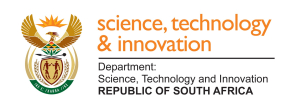The Public Relationship with Science Survey To Shape the Future of Science Engagement Towards a Science-Aware and Literate Society
11 April 2025
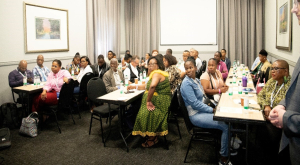
South African Public Relationship with Science (SAPRS) Conference at the Birchwood Hotel and Conference Centre
The Department of Science, Technology and Innovation (DSTI) recently hosted the first-ever South African Public Relationship with Science (SAPRS) Conference at the Birchwood Hotel and Conference Centre in Johannesburg. The purpose of the reflection was to share findings of a SAPRS survey conducted by the Human Sciences Research Council (HSRC), gather feedback from the various sectors of society and shape the future of science engagement in South Africa. The SAPRS survey conducted in 2022 tracks the public relationship with science, fosters dialogue and shapes better science and technology (S&T) public policy. The relationship between the public and science is importance for a thriving society – an informed public correlate to a better quality of lives, greater democracy and increased interest in science, technology, engineering and mathematics.
The SAPRS conference afforded participants from key sectors of society the opportunity to reflect on the report’s findings and share their thoughts, including through robust discussions in breakaway groups. All conference delegates had the opportunity to discuss all the topics under consideration. The lead expert facilitating the robust discussions in accordance with the themes of the SAPRS reports, included Dr. Nqobile Xaba from Mapungubwe Institute for Strategic Reflection, Prof. Susa Booysen from the University of Witwatersrand, Dr. Komane Mphahlele from the University of Limpopo, Prof. Mamokgethi Phakeng from Perspicuity Consulting, Prof. Lindile Ndabeni from MeyAgri (Pty) Ltd and Prof. Cathrine Sutherland from the University of KwaZulu Natal. Following the exciting engagements, the consolidated outcomes have been produced with the following recommendations, amongst others:
- The survey results indicate that access to science information is still a privilege afforded mostly to the country’s young, educated and affluent. This needs to change. Access to science information should be regarded as the public’s right.
- Science communication should take into consideration South Africa’s linguistic diversity and make sure that all local languages are used in science engagement.
- Curiosity, inquiry and evidence-based decision-making and behaviours should be ingrained in both the personal and professional domains through the science engagement programme.
- To advance the goals of the science engagement programme and encourage knowledge co-production between scientists and non-professionals, citizen science ought to be embedded in the programme.
- The current science engagement policies are still relevant, but their implementation has to be stepped up by democratising the programme, expanding its reach and promoting diversity, among other things.
- The science engagement programme should have a strong science for society component, which includes applying scientific research and knowledge to address societal issues, for example, fostering an understanding of natural phenomena and the provision of early warning signals to aid in public preparation for disasters like those brought on by climate change.
ABOUT THE SOUTH AFRICAN PUBLIC RELATIONSHIP WITH SCIENCE SURVEY
The first comprehensive survey aimed at measuring and monitoring public levels of science knowledge, attitudes, and engagements was conducted in 2022. The survey will be repeated every five years. A comprehensive report describes the study methodology as well as the Science Engagement Monitoring and Evaluation Impact Indicator Framework (SEMEIIF) that informed the construction of 27 science knowledge, attitudes, and engagement measures.
The report reveals that science and technology knowledge, attitudes, and engagement are shaped by background, education, income, location, technology access, and life experiences. The report further highlights that the legacy of apartheid and issues like poverty and inequality impact how people experience science and technology. The key findings of the survey according the five themes and indicators in the report are as follows:
THEME 1: Interest in and knowledge of science and technology and the environment
South Africa has a strong science pulse! 60% of the public were aware of science & technology in SA, with 66% reporting high interest in S&T topics. Top concerns included the areas of education, water and electricity supply
THEME 2: Promise and reservation attitudes towards modern and traditional science and technology
South Africans recognise science and technology’s benefits and risks. The promise of better livelihoods & health is balanced against rapid rates of technological change. 63% valued traditional knowledge, but half trusted modern science more
THEME 3: Trust in science and confidence in science institutions
SA adults trust scientists and scientific information from universities and research organisations; however, reservations persist across demographics. Trust in science exists, alongside concerns about institutional transparency and accountability.
THEME 4: Access to and trust in science and technology information
While many South Africans have internet access, actual consumption of digital science and technology information remains low. Television and radio remain the most prevalent and trusted sources of S&T information across all demographic groups.
THEME 5: Views of pride, promise and priorities in the system of innovation
South Africans value the contribution of science and technology, expressing pride in national achievements. We recognise the importance of STEM skills for youth development and crisis management. Public priorities lean towards immediate societal challenges, including energy supply, clean water, and quality education
THEME 6: Science engagement activities and behaviours
Science engagement includes various activities. While many of the public pursued STEM subjects in school, access and participation in science and technology events remain limited, with low participation rates. SA needs more science and technology accessibility and engagement!
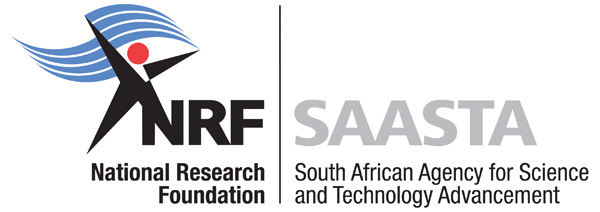
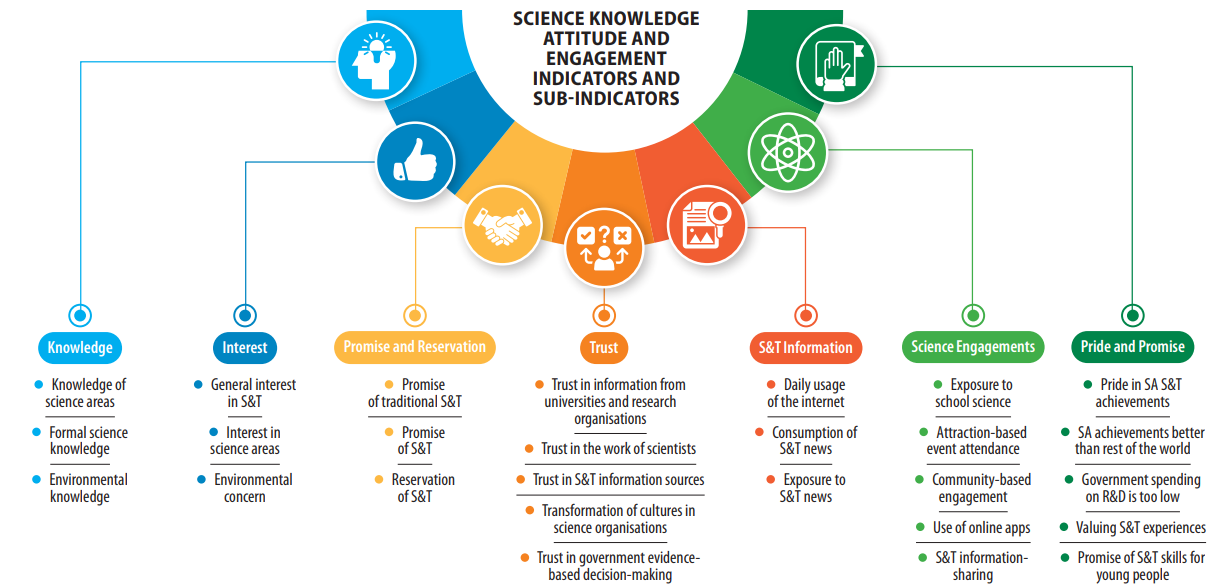
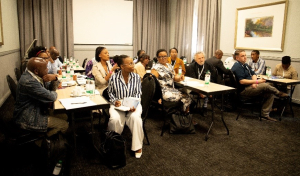
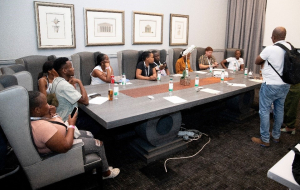
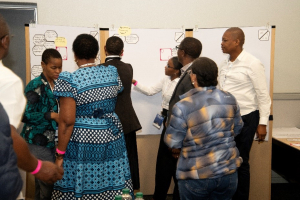
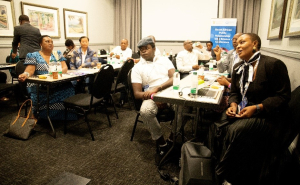
 The South Africa Agency for Science and Technology Advancement (SAASTA) is a business unit of the
The South Africa Agency for Science and Technology Advancement (SAASTA) is a business unit of the 